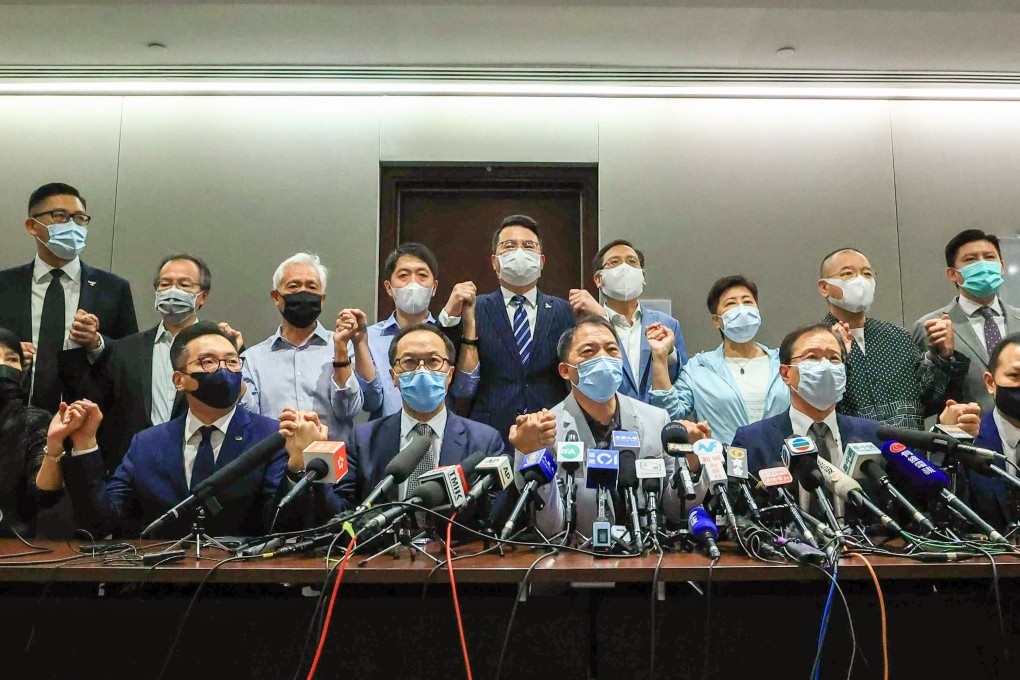Editorial | Hong Kong must meet challenge after Beijing ousts local lawmakers
- As all opposition legislators vow to resign in protest at a move that bypassed local courts, city has been hit by political shock waves at a time it craves stability

The decision to unseat four pan-democrat lawmakers has sent political shock waves across Hong Kong, and not only because it was made without going through the local courts as previously.
In response, opposition lawmakers have vowed to resign en masse in protest at the move. The outcome is hardly conducive to stability and has a far-reaching impact on political development.
The four risked being ousted when the Legislative Council was extended by another year. They were barred from standing in the now-delayed September elections after their lobbying for foreign sanctions against the government in the wake of last year’s protests was deemed inconsistent with the requirement to uphold the Basic Law.
Chief Executive Carrie Lam Cheng Yuet-ngor said on Wednesday it would be illogical and politically unethical for them to stay on, referring to the anomaly of their oath of office and the election ban. It had nothing to do with the recent filibustering in Legco, she added.

04:08
Hong Kong opposition lawmakers to resign en masse over Legislative Council disqualifications
Statements issued by mainland authorities further stressed the importance of “patriots forming the main body of administrators”, a reference used by late paramount leader Deng Xiaoping.
The original “through train” for all members was seen as a positive gesture to ease tensions stemming from the imposition of the national security law. It has proved to be just wishful thinking, as Lam conceded that the fate of the four had always been on the government agenda.
